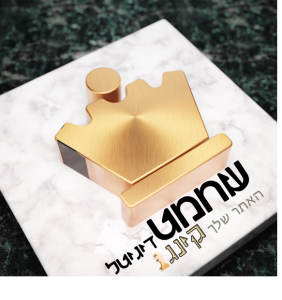Ki Tavo -Faith in the Future
The Mishnah in the third portion of Masechet Bikurim describes the process of how the farmer brought his first fruits, the bikurim, to the Bet Hamikdash (The Temple). The Mishnah illustrates an incredible spectacle, marvelous to behold. The farmers would gather together at the outskirts of Jerusalem to start a festive procession accompanied by musical instruments and tremendous fanfare. The workers of Jerusalem would greet the farmers as they passed by. At the end of the third Mishna we read: “All of the craftsmen in Jerusalem stand up (in honor) of them, greeting them: ‘Our brethren from such and such a place – come in peace.’”
Finally, the procession would reach Har Habayit (The Temple Mount) where the farmers would offer their first fruits in a magnificent ceremony. What did the farmers actually bring to merit this great ritual? The mitzvah of bikurim is one of the mitzvot listed by the Mishnah that has no proscribed amount (shiur):
“A man goes down into his field, he sees a fig that ripened, or a cluster of grapes that ripened, or a pomegranate that ripened, he ties a reed-rope around it and says: let these be bikkurim”
This Mishnah teaches us that the farmer can bring the tiniest piece of fruit and fulfill his obligation. This is in stark contrast to another agricultural mitzvah, that of ma’aser (tithes. In this case, the farmer gives away one Twentieth of his entire produce it
involved the setting aside of one tenth of specific agricultural
produce from the first, second, fourth, and fifth, years of each seven
year cycle, for the purpose of taking it to Jerusalem, and consuming
it there. . Yet, this mitzvah, is not accompanied with a party or celebration though the farmer has given one Twentieth of his entire produce and is in Jerusalem with one tenth of his entire produce. Why? What is the difference between the mitzvah of bikurim and the mitzvah of ma’aser?
The giving of ma’aser requires removing a substantial amount of the crop, but that amount is separated from what has already been produced. The harvest is over. The farmer has already counted his crops. He knows what he has harvested for the year. Bikurim is the exact opposite. It is an offering of the very first fruits on what is yet to come. The farmer does not yet know what this year will yield. The farmer has nothing for all his labors yet the first fruit that appears is marked and eventually taken to Jerusalem. Bikurim is a gift of the unknown –ma’aser is a gift from the known. The focus of ma’aser is the past: That of bikurim is the yet unknown future. . Performance of the mitzvah of Bikurim is an act of faith-which deserves to be lauded.
We, too, are now looking at the future, the unknown. We stand on the threshold of a New Year. We hope this year will yield terrific results and success for all of us. We pray that we will begin the year with blessings. To quote the Talmud “Tichleh shana uklaloteha”, – May the year end with all of its curses; “Tachleh shana ubirchoteha” – May the New Year begin with all of its blessings.
It’s a New Year, a new page, a brand new book. May Hashem grant all of us and our families, along with Klal Yisrael, and through us all good people, be blessed with a year filled with good health, happiness, nachat, and fulfillment. Let us celebrate the first days of the year as our forefathers celebrated the first fruits, with excitement, anticipation, and enthusiasm.

 שחמט דיגיטל
שחמט דיגיטל